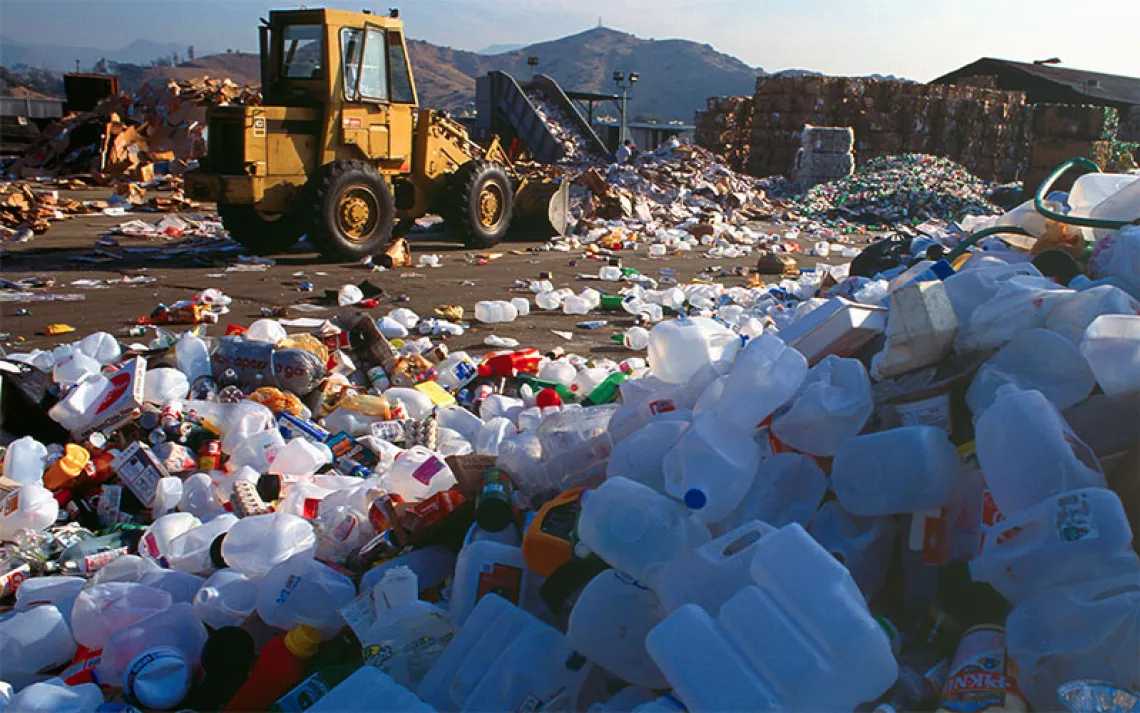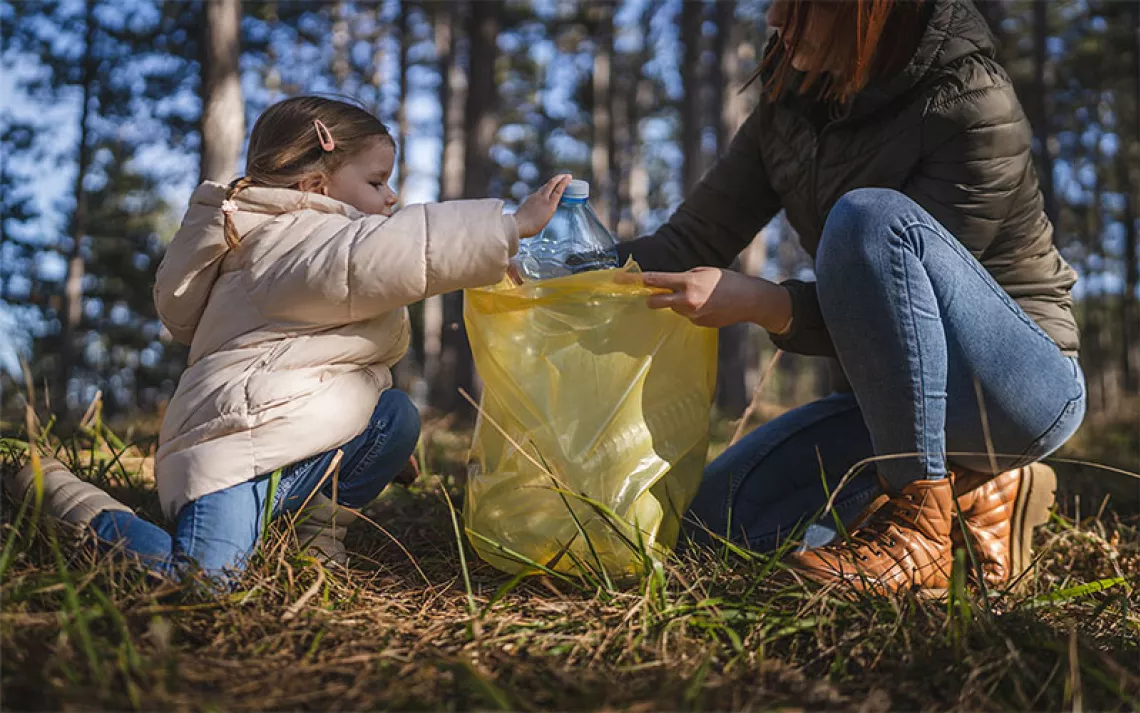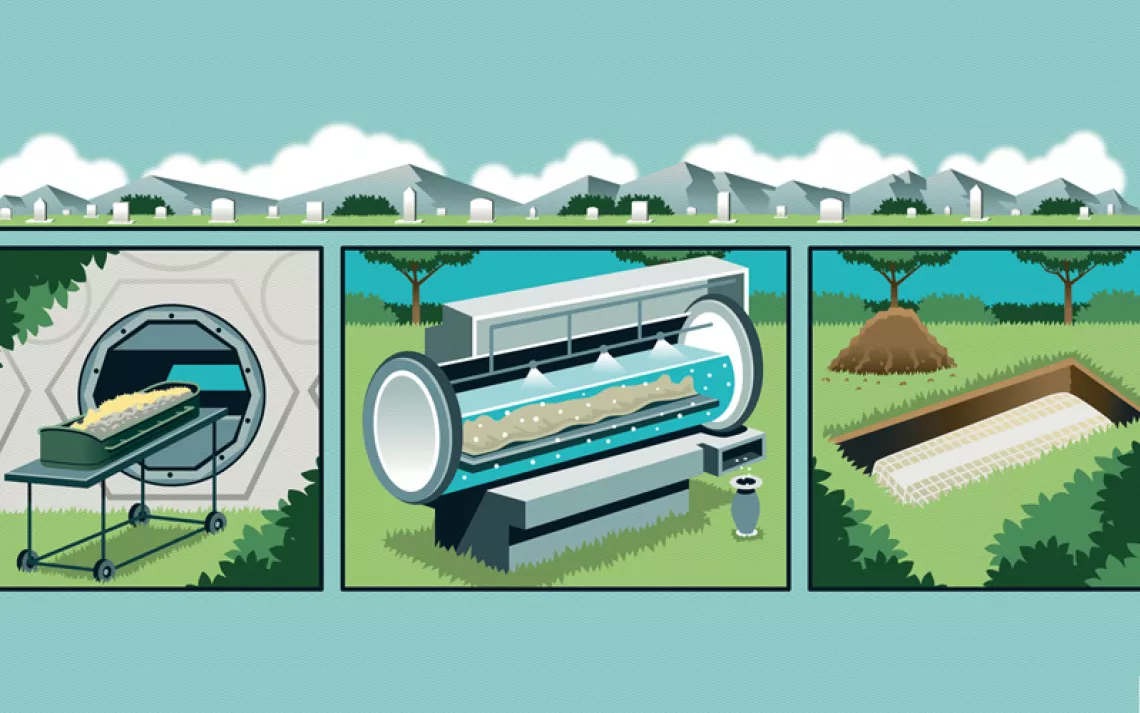Leading to a Greener Way

Thimphu, the capital of Bhutan | Photo by iStockphoto_PhotonPhotos
It was a mild evening on March 7, 2010. Subash Sharma, then a 26-year old IT engineer, was deeply engrossed in a conversation with his college mate and close friend Karma Yonten, a year his senior and the owner of an IT firm. They were in a local bar in Thimphu, Bhutan’s capital city, surrounded by social drinkers going about their business. However, the two men were oblivious to the activities around them. They were discussing an idea that would change the face of waste management in Bhutan.
“We had a burning desire to start a business that would mitigate the growing trash problem in the city,” said Subash Sharma.
Later the same year, the two co-founded Greener Way, Bhutan’s first and only private waste management company.

Greener Way employees sort garbage
Steeped in Buddhist tradition, which affirms the sanctity of all sentient beings, the tiny Himalayan kingdom in Southeast Asia has traditionally embraced pro-environment and sustainable conservation policies. Currently, 72 percent of its land is forested, and its 2008 constitution mandates that the country maintain 60 percent of its forest cover for all time. Nevertheless, the country’s largest cities face the same pressures of urban centers all over the world, including rapid population growth and development. In recent decades, there’s been an influx of rural migrants into Thimphu and other cities from the less developed eastern districts. As of 2015, the urban population in Bhutan accounted for nearly 40 percent of the country’s total population of just under 1 million. Thimphu, the largest city, has a population of more than 120,000.
In 2010, when Sharma and Yonten were hashing out plans for Greener Way, government waste management was not keeping up with demand, and it was not uncommon to see trash piling up in the streets of the capital. Often, people would burn garbage in their backyards. No program existed for separating out recyclables or compostables, and the waste that was collected was indiscriminately dumped in Memelakha, the country’s largest landfill.
Once they founded Greener Way, Sharma and Yonten researched the problem carefully, visiting Memelakha to study the types and amount of waste generated and interviewing the municipality office and the National Environment Commission to gather waste-related data and develop a plan. In 2014, the company took over the city’s waste management system.
Now, six years after Sharma and Yonten’s initial brainstorming session, the streets of Thimphu and its intermittent patches of greenery are noticeably tidier. The eyesore of waste piled everywhere has diminished, and few people burn their trash anymore. Residents of Thimphu have started to sort their garbage in their homes for pick up by trucks on different days of the week. Currently two days have been allotted for organic waste: Tuesdays and Saturdays.

Subash Sharma and Karma Yonten, founders of Greener Way
These days, only about ten percent of all waste collected ends up at the Memelakha landfill. The rest of it gets diverted to recycling centers or a composting plant south of Thimphu. Bhutanese who used to throw their snack wrappers and juice bottles on the ground without a second thought are becoming civic-minded and even inculcating green habits in their children. From January to September 2015, Greener Way diverted 2,566 tonnes of dry waste, 1,727.5 tonnes of wet waste, and 3,946.5 tonnes of mixed waste from the Memelakha landfill.
The company started modestly with only eight employees, but now employs 77 workers. Sharma has been more of the “strategist,” working behind the scenes, while Yonten, the chief executive officer, is the public face. In 2013, he was named Environmental Entrepreneur of the Year by Youth Business International.
“Our roles remain unchanged even today,” says Sharma.
Greener Way plans to expand its services to other districts beyond Thimphu. Sharma and Yonten's vision for the company is to be the premier waste management service provider in Bhutan and eventually lead the entire country toward a greener way.
 The Magazine of The Sierra Club
The Magazine of The Sierra Club



